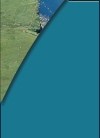combines the old and the new in an exhibition tracing the history of Killaloe, Capital of Ireland 1002-1014. The visitor information centre
provides a full range of services, including reservations for cruiser hire, nightly mediaeval banquet feasts, etc.
Ireland's most unique project provides an informative exploration of Irish Spirituality over 9,500 years.
There is a maze, outdoor performance area, viewing shelter overlooking Lough Derg, picnic and recreational area.
The project will function as an introduction into an area steeped in history, tradition and culture.
"Kilrush in Landlord Times" depicts the story of Kilrush from its establishment
as an Estate Town by the Vandeleur Landlords at the end of the 18th Century.
Starting point of a heritage walk through the streets of Kilrush.
Open daily, Jun. to Sept.
Dysert O'Dea Castle, Corofin
Home of the O'Dea Clan until 1691, this castle is situated in one of the richest
archaeological areas in Europe.
Open daily, May to Sept.
Portrays the traumatic period of Irish Culture, which includes famine and
emigration. It offers a professional genealogical service to persons wishing
to trace their ancestry.
Open year round.
The Living Past, near Ouin
Ireland's original prize-winning centre dedicated to interpreting the Pre-historic
and early Christian eras. Exhibits range from Bronze Age homesteads to Celtic
Chieftain's residences.
The "Brendan" boat is located here.
Coffee shop.
Open daily, Mar. to Oct. and during the weekends of Nov. to Feb.
The city boasts two museums, one in the beautifully restored Georgian John's
Square and the Hunt Museum at the National Institute of Higher Education
complex at Plassey. There is guide literature available at the tourist office in
Arthur's Quay.
The folk park in the castle grounds gives visitors a glimpse of traditional lifestyles
in the Shannon region. It features a complete reconstruction of a 19th century village
street, including craft shops, general stores and post office. There are examples
of houses representing a variety of districts from west Clare to the rich farmlands
of Limerick. Traditional crafts of an earlier age may be observed in action basket
weaving, farriery, candle making and the home-baking of bread.
A collection of early agricultural machinery is also on show. In the folk barn country
style meals are served and entertainment provided music, story-telling, Irish
dancing and songs.
Tells the story of the Battle of Aughrim and its significance in Ireland and
Europe. The Centre is open Easter to October, seven days a week.
|

